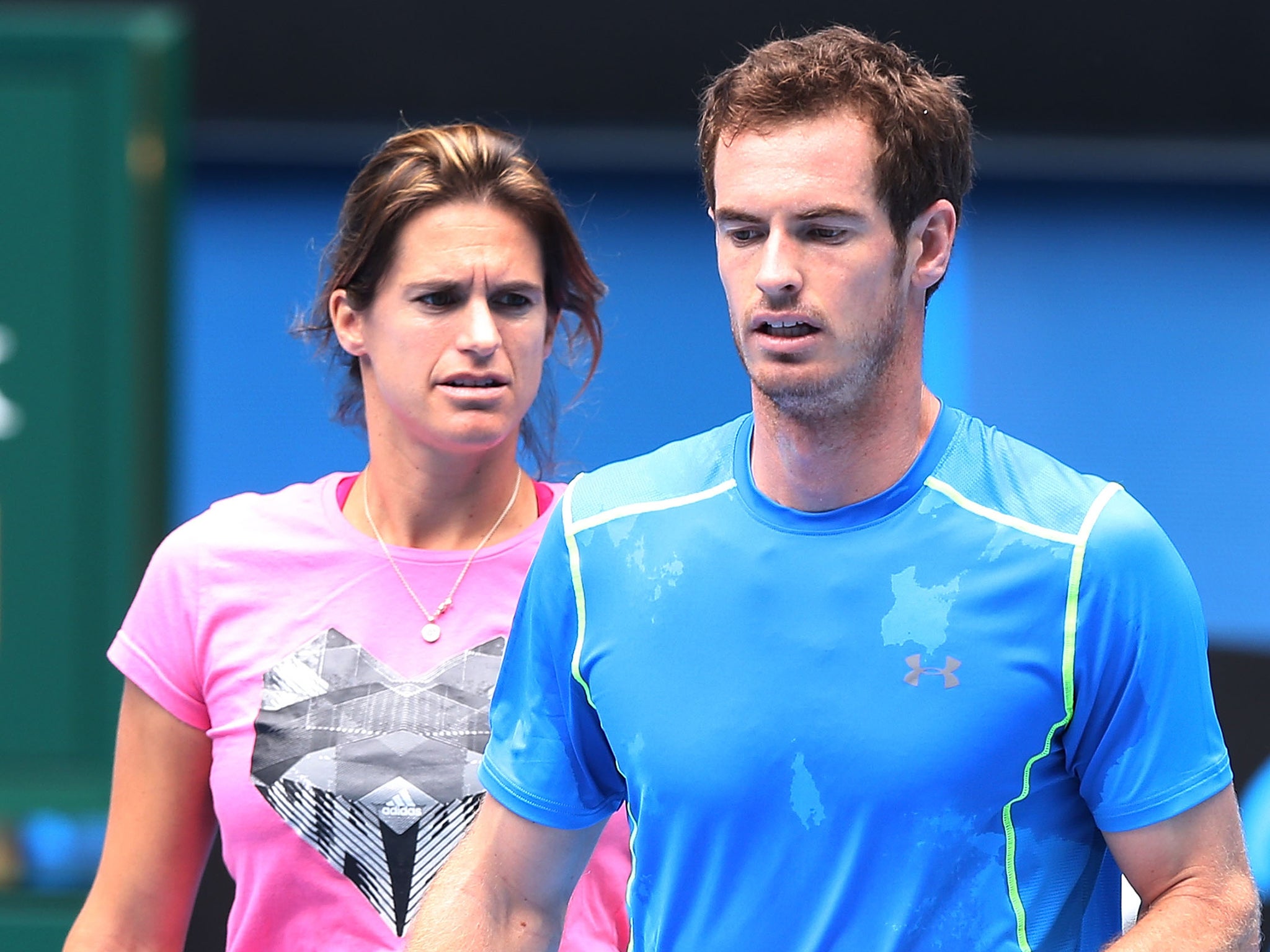Australian Open 2015: Thanks to Amelie Mauresmo, it's no longer Andy Murray against the world
COMMENT: Coach has provided a new dimension to the Scot

The changes in Andy Murray have been evident in subliminal ways. A little more laughter, sometimes at his own expense, a little of the weight lifted from his shoulders and evidently a little more contentment with his own company.
It feels like a dangerous stereotype to suggest that the only woman coach on the men’s circuit has brought something less visceral to Murray and his world but it feels that way and we can thank Amélie Mauresmo for it.
“A different point of view; a different set of eyes. When you need decisions to be made it’s sometimes important to get both sides,” is what Murray told this newspaper, on the eve of the Australian Open, she had brought and you wondered what he’d look like with some of the rage taken out. We know now.
Was it Mauresmo who encouraged him to work for the first time with a psychologist? She certainly influenced the decision and to see a man who once said “I don’t think counting to 10 helps when you are playing in the semi-finals of a Grand Slam on Centre Court at Wimbledon against one of the best athletes in the world” open his eyes to the mental nuances in elite sport made the heart soar, too. You feel that for Murray – so often at odds with himself and the world – these six months have been a process of growing up.
We will certainly have learnt more about Mauresmo before the weekend is out, if Murray can become the first man in the Open era to win the Australian Open after losing his first three Melbourne finals. But it is the player we must celebrate for the change, of course.
It was one thing to break the mould when investing in a new coach, presaging the break with his coach Dani Valledu and fitness trainer Jez Green, who were quite clearly set against the Mauresmo idea. But it took a different kind of boldness to do that when his all-too-brief career at the top seemed to be drifting away.
There was a very big call to make when Ivan Lendl, the man who had taken Murray over the threshold to the place of legends at Wimbledon two summers ago, could no longer commit his time to him. The standard route would have been to find more of the same.
This correspondent, for one, doubted that hiring Mauresmo was wise. You felt Murray needed someone to summon the inner hunger that Lendl, a serial winner, had located in him – not a player who had lifted Junior Wimbledon and French titles, then waited a decade for that promise to materialise into Wimbledon and Australian women’s singles crowns.

But Murray’s Melbourne fortnight has borne witness to the fact that the Lendl way is not the only way.
Murray has not vanquished the giants of the game in Grigor Dimitrov, Nick Kyrgios and Tomas Berdych, and the journey to Sunday’s final must be placed in perspective, but the player we are seeing seems to have discovered more joy in what he does.
It has translated into something different on court. The link between the psychological and physical are difficult to intuit in sport but the observations of Jamie Baker, the former Great Britain Davis Cup player, who has known Murray since childhood, seemed revealing after Murray had used the setback of losing the first set to Berdych as a motivating force in their semi-final on Thursday.
“I have never ever seen him do anything quite so dramatic as that before,” Baker said. “He had every right to sulk for a couple of games, but not a bit of it.” No more victimhood. No truculence. Just the kind of response that Roger Federer, Rafa Nadal and Novak Djokovic have always been more associated with.
I have wondered since one of my first encounters with Murray – in the aftermath of his spectacular Wimbledon fourth-round win over Richard Gasquet in 2008 – where the joy has really been for him in his chosen sport. He was an emerging force in the sport at the time, yet won over the British public that afternoon with that exhilarating win, coming from 7-5, 6-3 down to win in five sets.
He was late for the ensuing press conference and brought his takeway meal to it with him, shovelling it down as he spoke. There was no courtesy. No laughter. He didn’t seem to want to be there.
Where once it was Murray against the world, it now seems to be him with the world. Whatever Sunday’s outcome, it augurs well for the months ahead.
Join our commenting forum
Join thought-provoking conversations, follow other Independent readers and see their replies
Comments
Bookmark popover
Removed from bookmarks